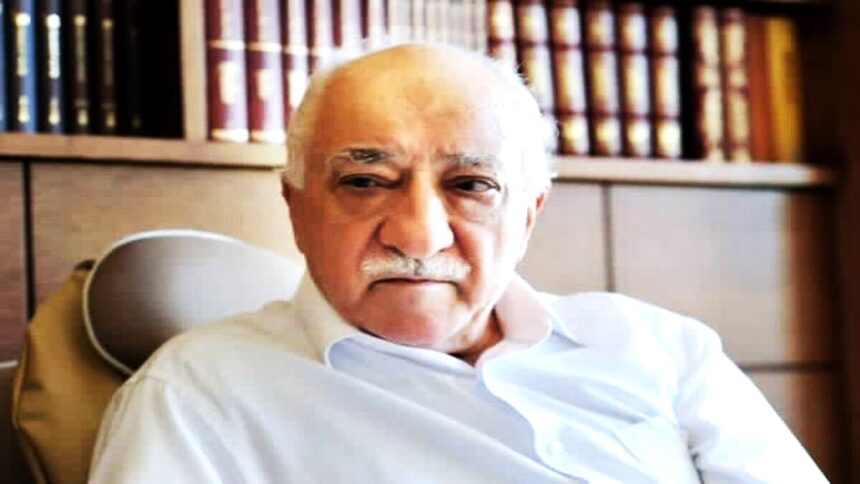The Death of a Controversial Figure
Fethullah Gulen, the Turkish cleric who became a polarizing figure in Turkey and beyond, has passed away at the age of 83. His death was confirmed by Turkish officials and social media accounts linked to his movement, with news outlet Herkul Nagme announcing that he had been undergoing treatment in a hospital. Gulen’s life was marked by significant achievements as well as deep controversies, particularly regarding his relationship with Turkish President Recep Tayyip Erdoğan and the accusations that followed him.
A Journey from Ally to Adversary
Born in 1941 in a small village in Erzurum, Turkey, Fethullah Gulen grew up in a religious environment as the son of an imam. His early education in the Quran laid the foundation for a life dedicated to Islamic teachings and humanitarian efforts. By the late 20th century, he had gained prominence as a scholar, setting up student dormitories and preaching in tea houses in Izmir. This grassroots approach helped him build the Hizmet movement, which eventually expanded into a global network of educational institutions, businesses, and media outlets.
Initially, Gulen was an ally of Erdoğan and the ruling Justice and Development Party (AKP). Their partnership thrived for over a decade, primarily based on shared Islamic values and mutual political interests. However, their relationship soured dramatically in the wake of corruption investigations in December 2013, which implicated several high-ranking officials within Erdoğan’s administration. Gulen’s followers in the judiciary and police were believed to be behind these probes, leading to a significant fallout between the two former allies.
Legacy of Fethullah Gulen and Hizmet Movement… pic.twitter.com/2zAhNkrdE3
— POLITURCO.COM (@politurco) October 21, 2024The Coup Attempt and Its Aftermath
The turning point in Fethullah Gulen life came with the failed coup attempt on July 15, 2016. Erdoğan accused Fethullah Gulen of orchestrating the coup, which resulted in the deaths of approximately 250 people and left the nation in turmoil. Gulen vehemently denied these accusations, labeling them as unfounded and insulting. He condemned the coup attempt in the strongest possible terms, expressing his dismay that anyone would link him to such a violent act.
Following the coup, the Turkish government launched a sweeping crackdown on Gulen’s movement, declaring it a terrorist organization. Thousands were arrested, and hundreds of schools, media outlets, and businesses connected to Gulen were shut down. Erdoğan characterized Gulen’s followers as “traitors” and likened the movement to a “cancer” that needed to be eradicated from Turkish society. This marked the beginning of a long and painful chapter for many of Gulen’s supporters, who faced persecution and violence.
A Life in Exile
Since 1999, Gulen had lived in self-imposed exile in the United States. His move was initially for health reasons, but as the political situation in Turkey deteriorated, it became a sanctuary amid growing threats against him and his followers. The Turkish government has long sought his extradition, but Gulen maintained that he had no plans to leave the U.S. He spent his later years in a gated compound in the Pocono Mountains, often issuing statements that reflected his continued commitment to dialogue and education.
Fethullah Gulen movement, known for its emphasis on education, tolerance, and community service, had a significant international presence, particularly in Central Asia, the Balkans, and Africa. However, after the coup attempt, this influence began to wane. Many institutions previously linked to Hizmet were dismantled, and the narrative around Gulen shifted from that of a respected religious leader to a reviled figure in the eyes of the Turkish government and its supporters.
A Complex Legacy
In his later years, Fethullah Gulen became an isolated figure. While his supporters continued to advocate for his vision of a peaceful and educated society, many in Turkey viewed him with suspicion. Opposition parties distanced themselves from him, fearing the ramifications of associating with someone seen as a threat to the state.
As news of his death spreads, reflections on Gulen’s legacy are likely to evoke a range of emotions. For some, he was a visionary who dedicated his life to education and service. For others, he was a manipulative figure whose network had infiltrated the very institutions of Turkish democracy. His passing marks the end of a chapter in Turkish history, one characterized by political rivalry, ideological battles, and the profound impact of religious movements on modern society.
As the world processes this news, Fethullah Gulen story serves as a reminder of the complexities of faith, politics, and personal ambition, illustrating how the legacies of such figures can be deeply contested and multifaceted.
Read More : Elon Musk Raises Concerns Over Electronic Voting Machines Ahead of 2024 Elections






